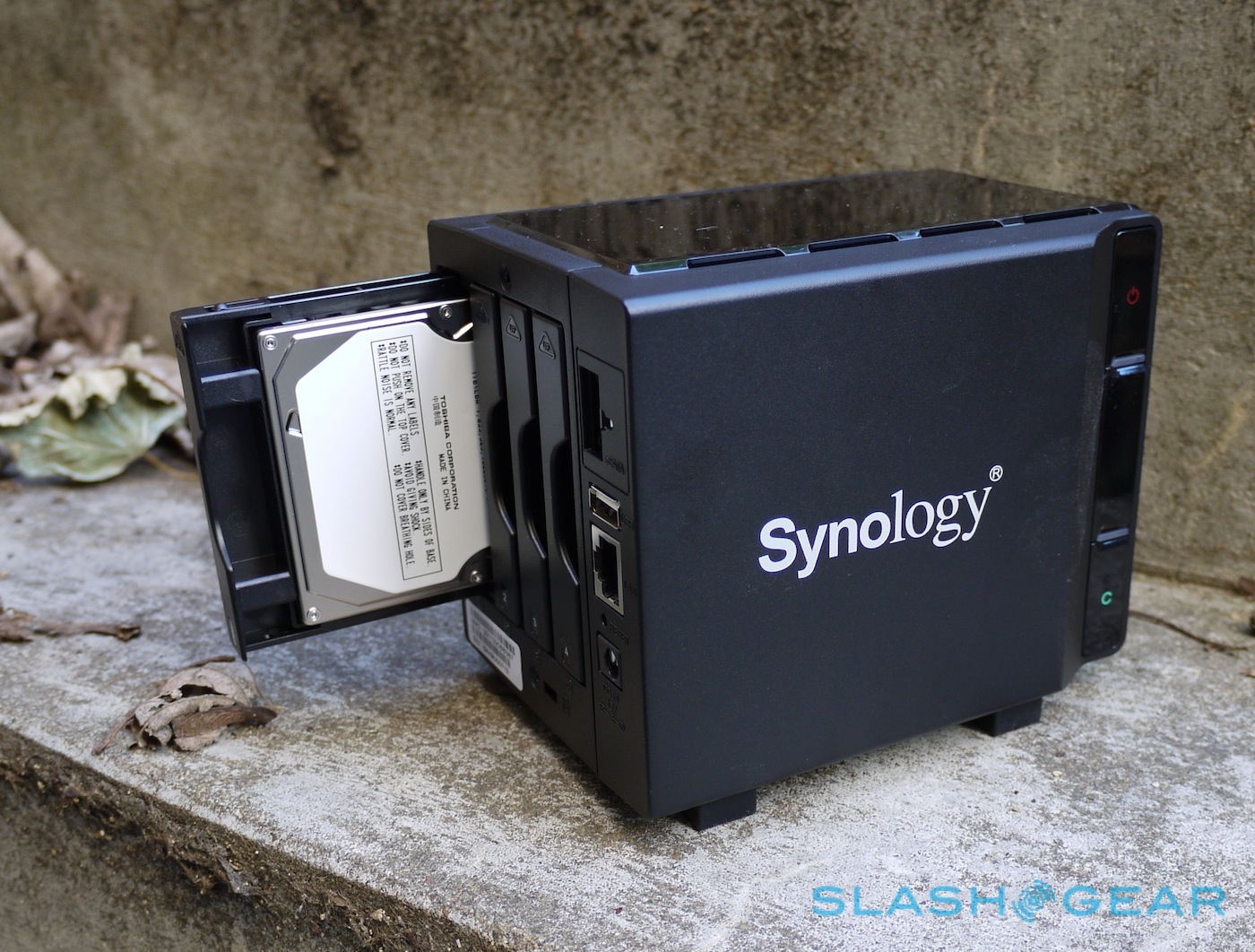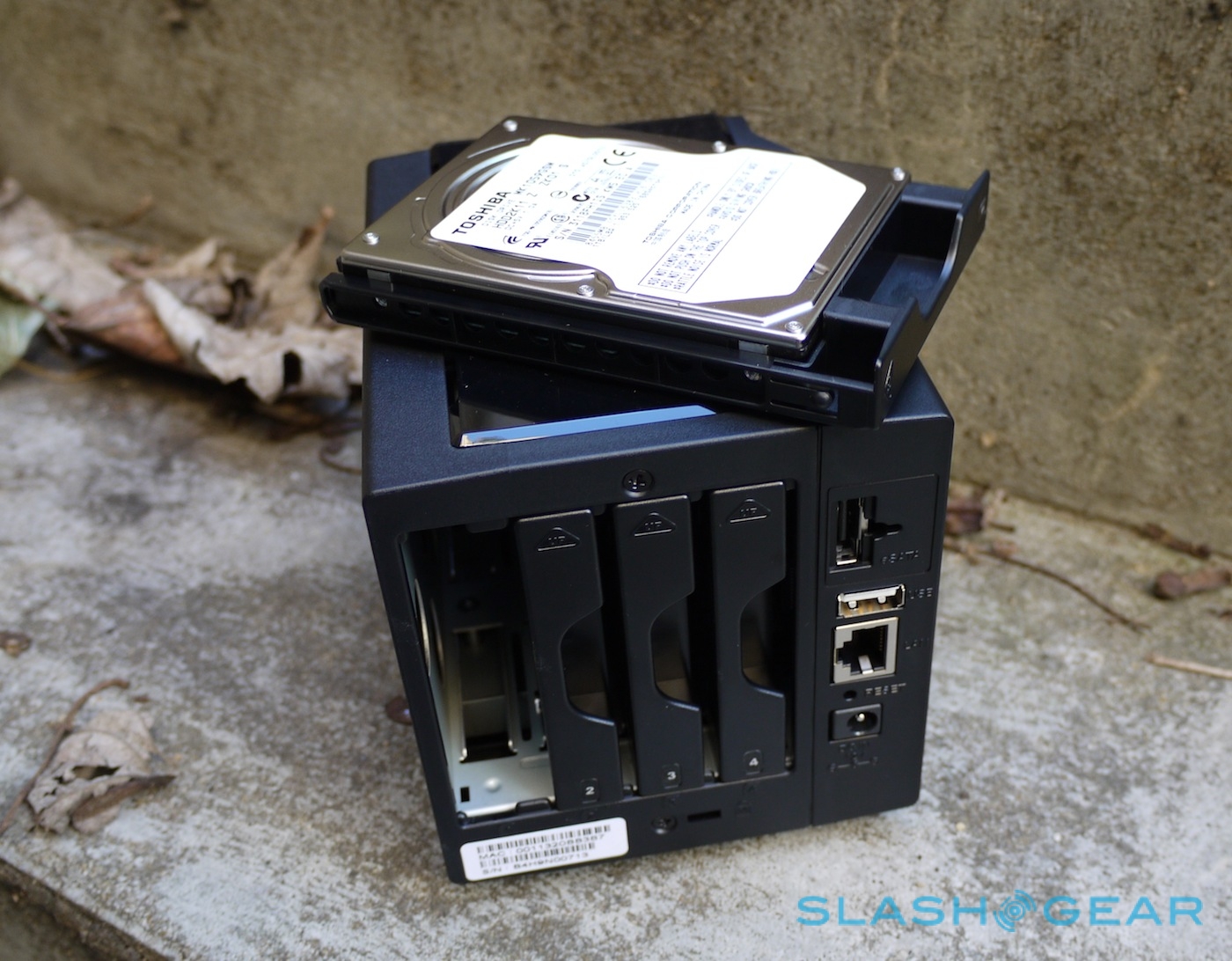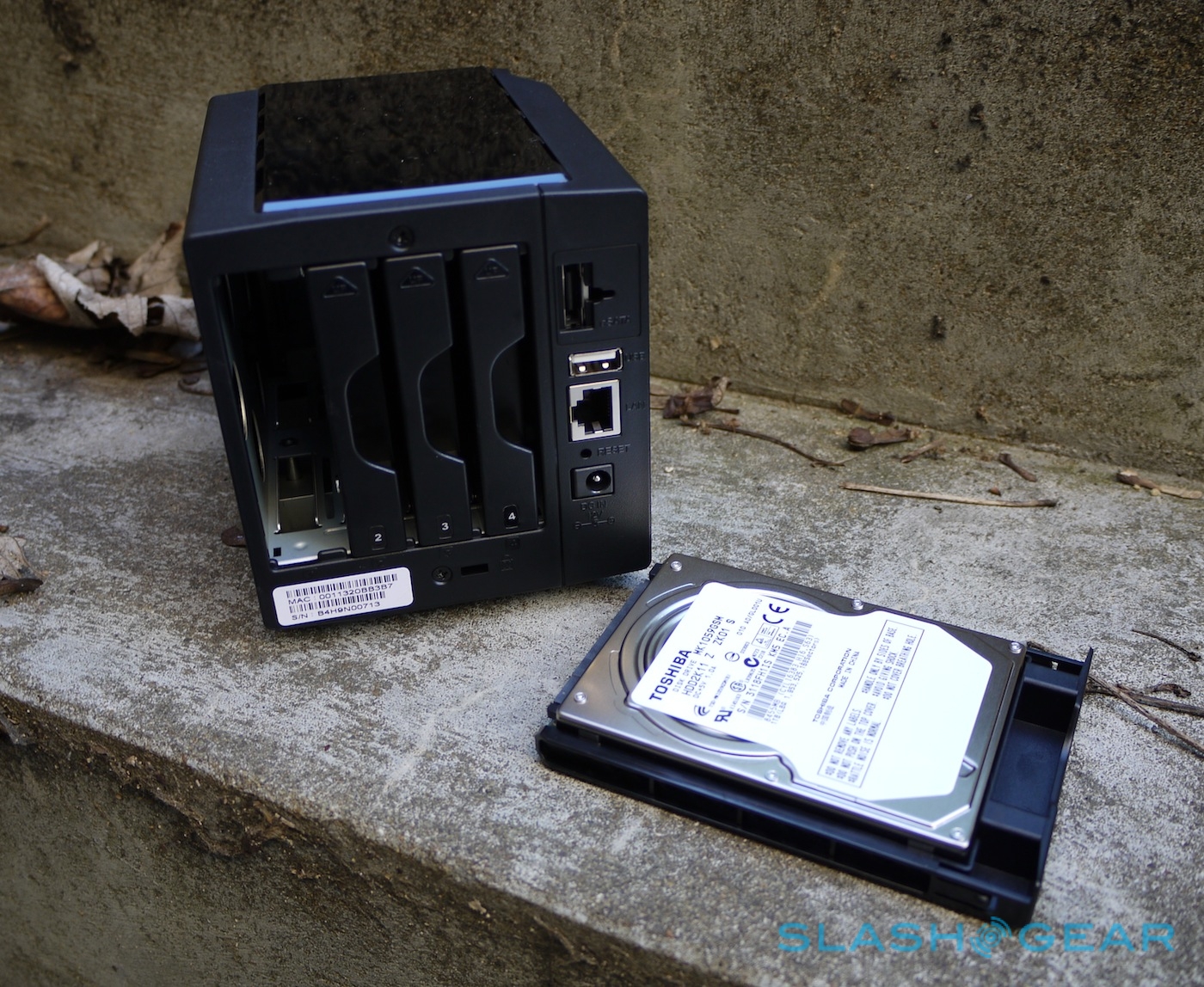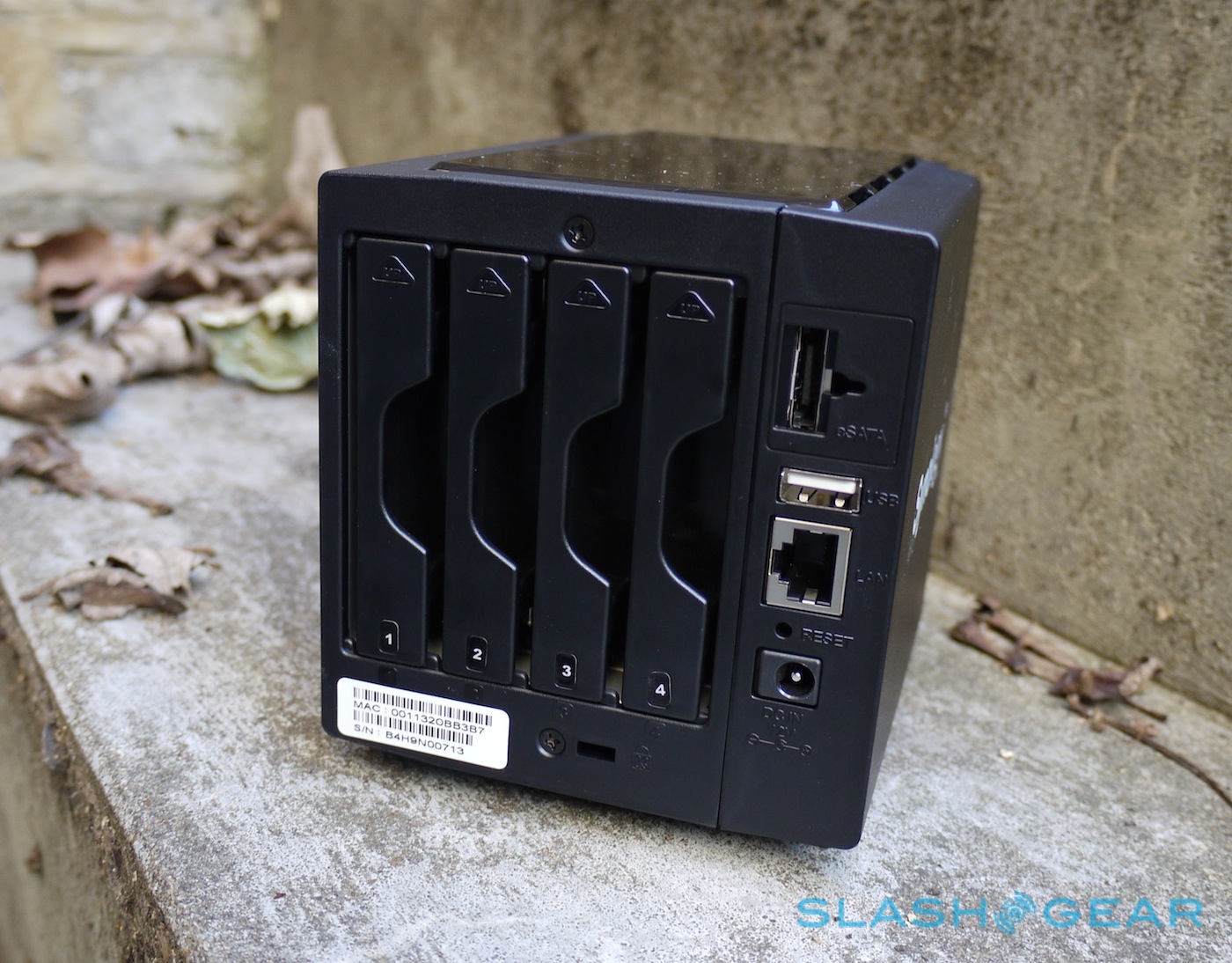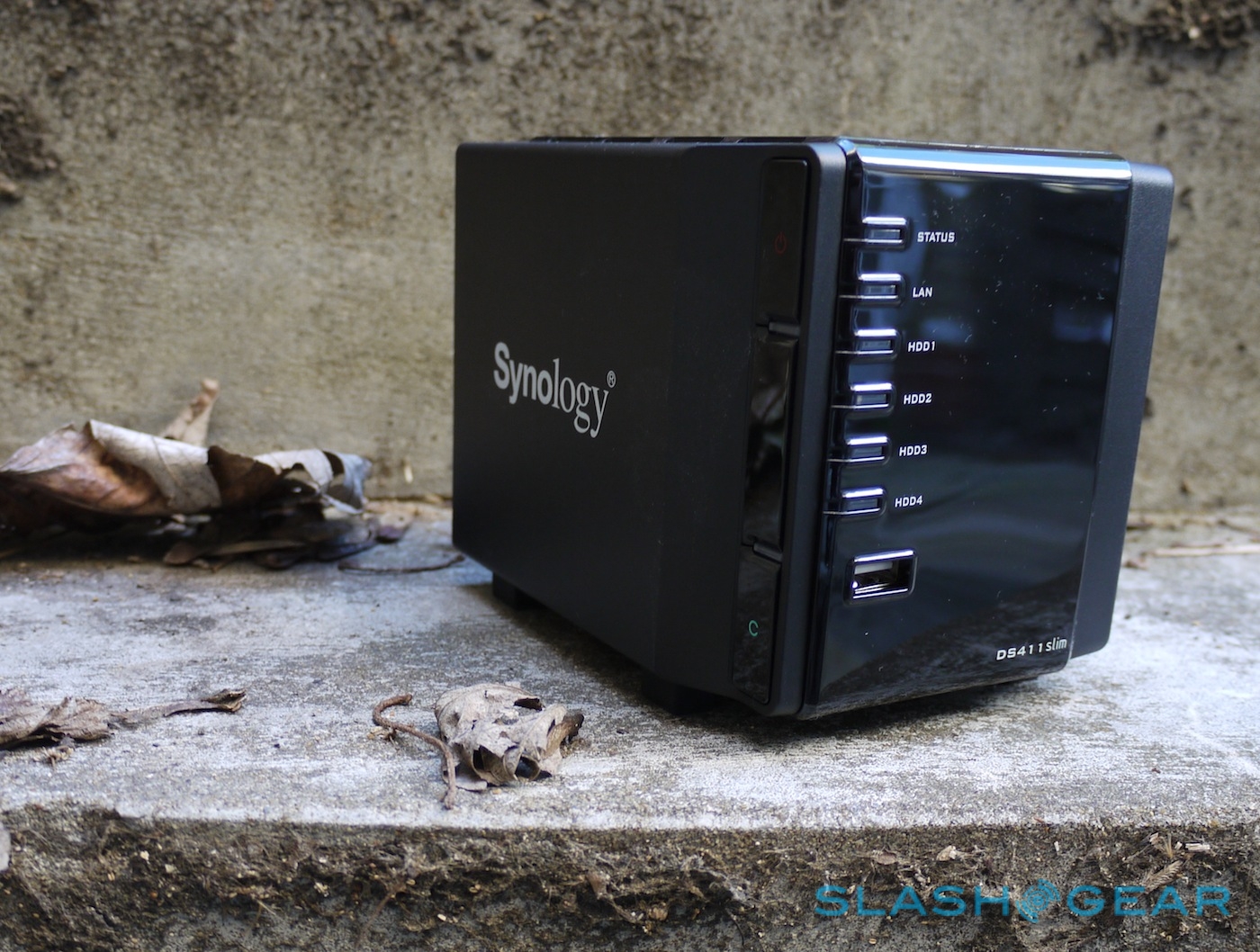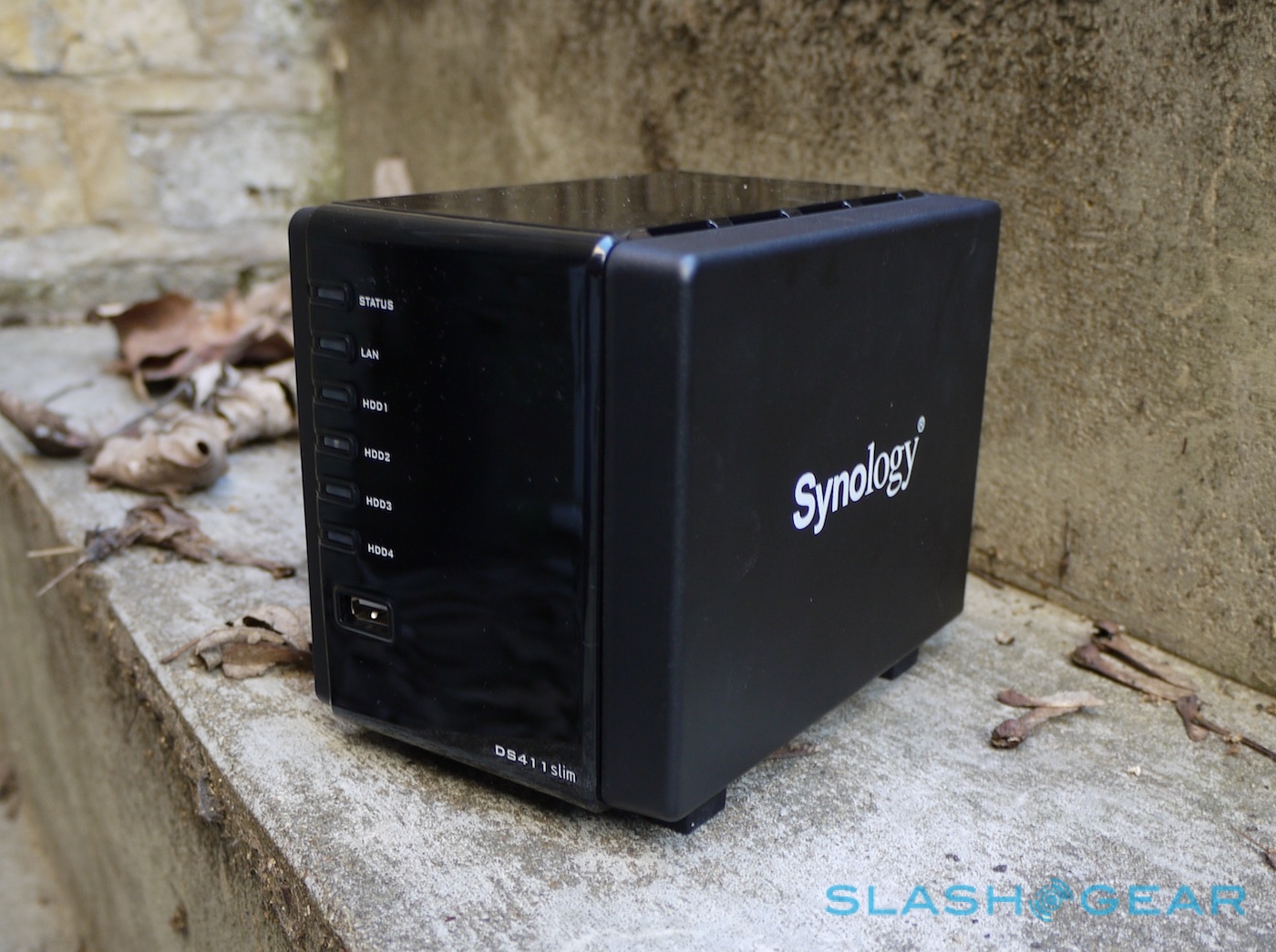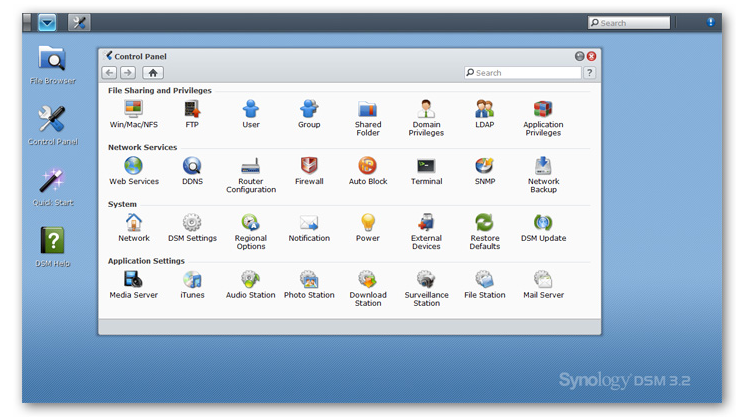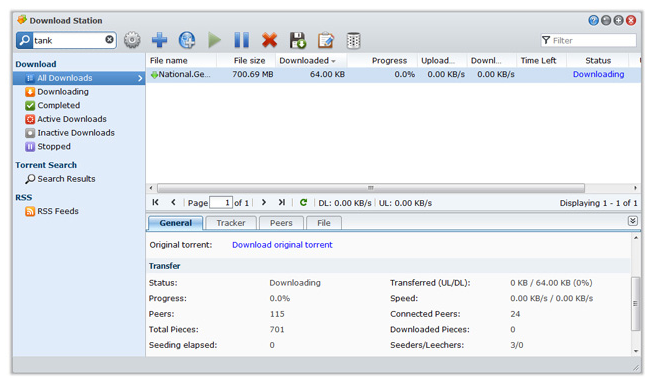Synology DiskStation DS411slim NAS Review
Backup is, for many of us, a guilty topic. Even the geekiest of computer-addicts can find themselves blindsided by data loss, and while cloud services like Gmail and Spotify may be rescuing us from having to keep local backups of our mail and music, there's still plenty of pain when a drive unexpectedly fails. Synology's DiskStation DS411slim offers a somewhat unique take on the home and small office NAS market, using notebook-sized HDDs to pack quad-drive redundancy into an device with a smaller footprint than the average router. Can it save us from drive death disaster? Check out the full SlashGear review after the cut.
Backup Basics
Drives fail: it's a fact of life. Many people upgrade their PC or laptop more frequently than the average HDD/SSD lifespan, but there's always the possibility of a spontaneous hardware failure to really put a dampener on your day. Then there are accidents – dropping your laptop, spilling coffee into it, having it stolen or simply losing it – and user errors, such as inadvertently deleting files that subsequently turn out to be vital. With many media collections being entirely digital these days, it's important to have a second copy just in case the worst should happen.
There are several ways to make that second copy, some local and some remote. The "cloud" – or basically somebody else's servers that you access through the internet – is a fashionable option today, though can grow expensive the more space you take up, and can be slow depending on the speed of your broadband connection.
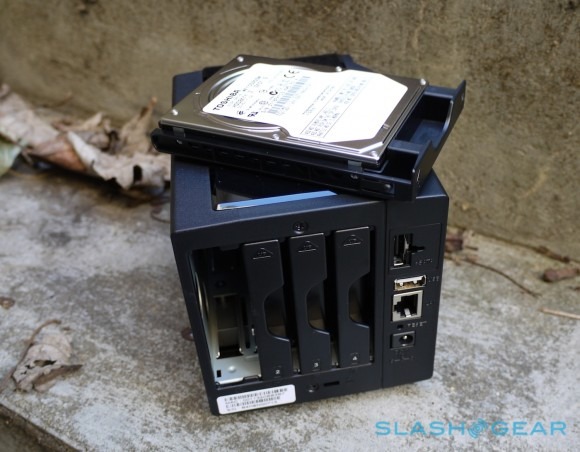
More common is local backup: some sort of secondary drive that you use to store a copy of your primary data. A few years back you could squeeze most of your important files onto a DVD or a Blu-ray; now, with ever-growing quantities of digital content, optical media is generally insufficient. Instead a second drive (or a number of drives) come into play, the simplest setup being a USB/eSATA/FireWire/Thunderbolt/etc external HDD directly connected to a single computer, or else network-attached storage (NAS) which hooks into your local network and performs backups from one or more computers over ethernet or WiFi.
The benefit of a NAS is that it's readily shared between several computers: with enough storage, you can replicate the contents of a number of drives with a single unit. They're also more likely to feature drive redundancy, where two or more HDD/SSDs are used to keep mirrored copies of your data. If a backup drive subsequently fails, the entire backup isn't lost. That's where the DS411slim comes in.
Hardware
The DS411slim may be – at 120 x 105 x 142 mm and 660g – smaller and lighter than most of the company's other NAS, but it doesn't stint on power. Inside the black plastic chassis there's a 1.6GHz processor with 256MB of RAM, while in addition to the four 2.5-inch HDD bays you get a pair of USB 2.0 ports (one upfront with a dedicated copy button to instantly backup a USB drive) and an eSATA port to add storage or share USB printers across your network. A single gigabit ethernet port gets the NAS online.
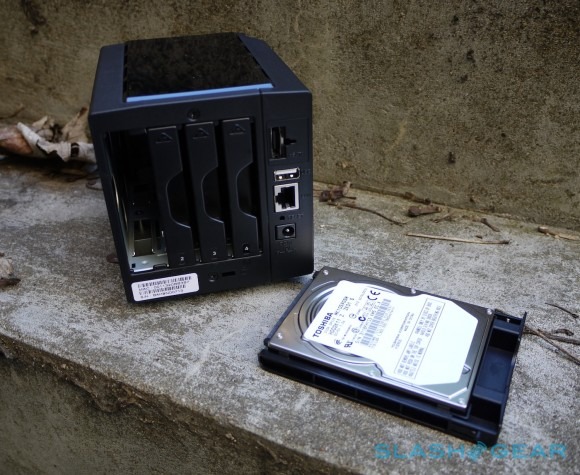
Opting for notebook drives keeps the DS411slim small; Synology is also keen to point out that HDDs intended for laptops are usually quieter and cooler, suffer less vibration, can have increased MTBF (mean time before failure) and are more resilient to bumps than desktop drives. On the flip side, they're more expensive per gigabyte than 3.5-inch drives and offer a reduced maximum capacity: most models top out at 1TB, versus the 3TB of the physically larger versions.
Of course, since the DS411slim has four bays, that's a maximum of 4TB supported. Each drive screws into a snap-in plastic tray and slots into the NAS itself. They're cooled by a 60mm fan that, in general, proved so quiet as to be unobtrusive: even under load, it was only when we got up close to the Synology that we could really hear it.
Software
Like other Synology products we've reviewed, the DS411slim runs the company's DSM 3.2 software, and it's one of the SlashGear team's favorites for NAS management. Laid out across a Windows/OS X style desktop, each aspect of DSM's functionality – and there are plenty – lives in its own draggable, multitasking window. Out of the box there's support for multiple user accounts (with optional usage limits), site and mail server hosting, DLNA/UPnP media streaming to your PS3, Xbox 360, computer or PMP, standalone downloads (including BitTorrents), printer sharing (for up to two printers) and FTP support.
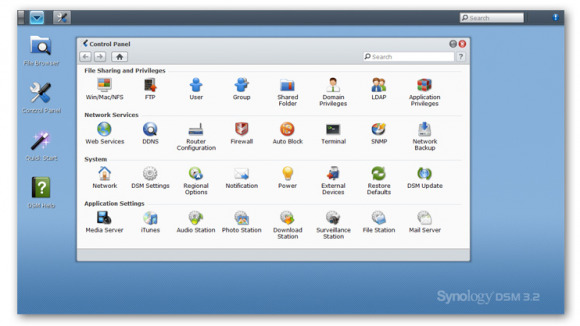
Optionally, the DS411slim can be turned into a VPN server, a Squeezebox or iTunes media server, various types of enterprise-focused drive, or – with various free iOS and Android apps – offer up its content to your phone or tablet.
DSM 3.2 supports regular RAID – including Basic, JBOD, RAID 0, RAID 1, RAID 5, RAID 5+Spare, RAID 6 and RAID 10 – but we opted for Synology's own Hybrid RAID system. This can create a redundant array across multiple drives of different sizes, and automatically adapts if a new drive is added: that means you can start off with two HDDs and then, as you need more space, add more as necessary, without having to start your RAID array again from scratch.
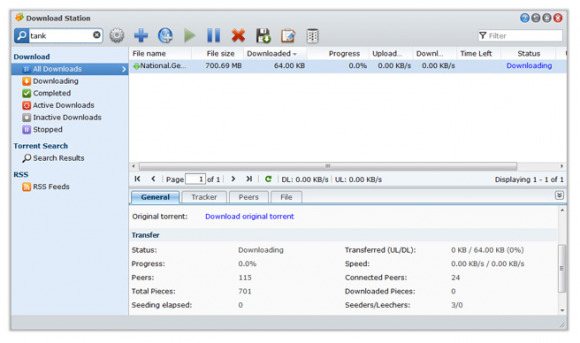
Setting up the NAS to work with Time Machine on OS X was straightforward. By creating backup-specific user accounts – one for each computer – with individual limits on how much HDD space they could take up, we stopped Time Machine from running amok and consuming the entire array. Incremental backups happen automatically, and even over a WiFi 802.11n connection were not too intrusive to other network use. Windows users, meanwhile, get a copy of Synology Data Replicator 3 on the bundled DVD, allowing PCs to do the same thing.
Performance
We installed two 1TB Toshiba 5,400rpm hard-drives, and let the DS411slim set up a Hybrid RAID array: we ended up with 912.45GB of available space. Should one of the drives fail, our data would still be safe on the other, and after installing a new drive the NAS would automatically rebuild its array. It's worth noting that the drive bays aren't hot-swappable, so you need to shut down the DS411slim in order to swap out or add in disks.
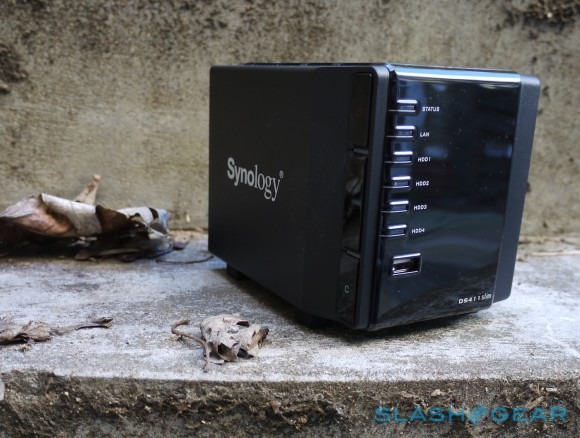
Over a gigabit ethernet connection, the DS411slim managed 43.2 MB/s write speeds and 59.6 MB/s read speeds. You'll get faster speeds if you set the NAS up as a RAID 1 array, but no drive redundancy. It's worth noting that the bottleneck for most users is unlikely to be the core drive speed itself, but the network: with more and more home users relying on WiFi, sheer network throughput is going to have the biggest impact on things like backup times.
Wrap-Up
There's a price/performance/convenience balance to be made with the DiskStation DS411slim. The barebones RRP of $319.99/£232.99 compares well to other four-drive NAS, but you'll spend more on drives and get less maximum capacity too. On the flip side, your backup system will likely be quieter and smaller than most of those rivals.
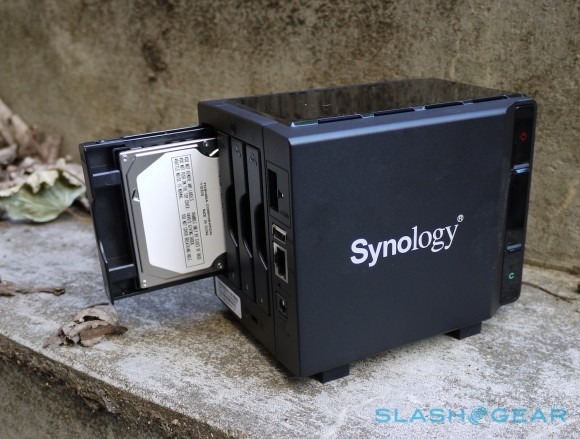
In the end, while business users and those with a taste for HD video may want to look to a NAS that accommodates 3.5-inch drives, the DS411slim holds plenty of appeal for the regular consumer. Backup support for multiple PCs and Macs, a wealth of media sharing features and DSM's software flexibility to turn the DiskStation into a mini server, webhost, 'Torrent station or jukebox add up to a system with broad appeal and flexibility. Factor in the straightforward UI and compact footprint and you can see why the Synology DiskStation DS411slim comes highly recommended.

